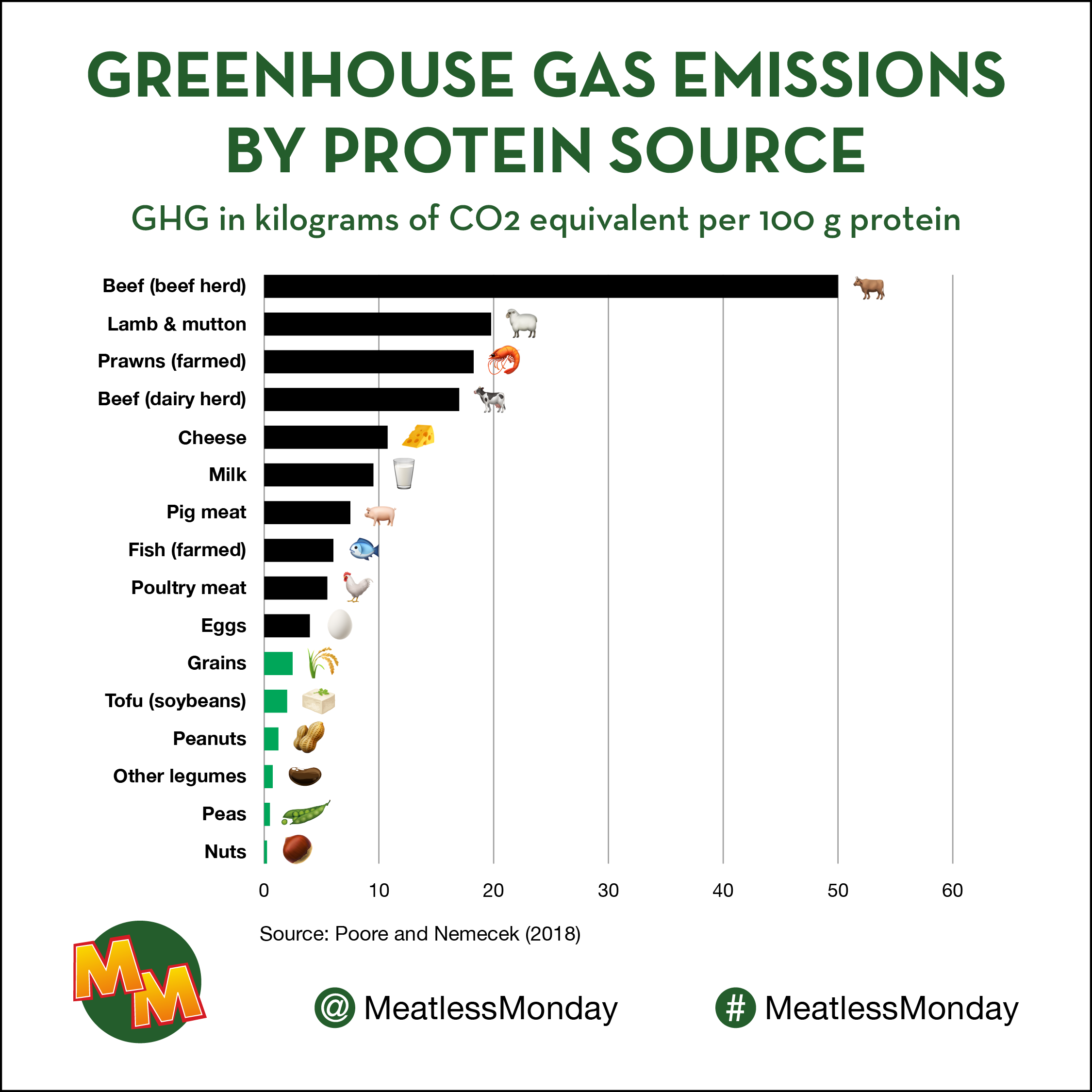Daily food choices have a direct impact on the environment. Everything a person consumes—from lettuce and soy milk to shredded cheese and beef—requires resources to produce. However, some foods require more resources than others. When it comes to agriculture, an overwhelming body of research shows that meat production has the largest impact on the environment and climate change. Eating less meat and more plant-based foods can help conserve precious resources and ensure a safe and habitable planet for future generations.
How eating more plant-based foods protects the environment
Lowers greenhouse gas emissions
Nearly 15% of global greenhouse gas emissions come from the production of meat, dairy, and eggs. Livestock production produces more greenhouse gases than the world’s entire transportation sector—cars, trucks, planes, trains—combined. The majority of those emissions come from cattle in the beef and dairy sectors. Eating more plant-based foods can help reduce the emissions associated with meat production. For example, a plant-based burger has a carbon footprint 12 times smaller than a beef burger.
Saves water
Meat, particularly beef, has the highest water footprint of all foods. The water use primarily comes from growing feed crops, raising the animals, and treating and disposing of waste. Considering all production stages, one serving of beef requires nearly 10 times more water compared to one serving of beans. Eating a more plant-based diet can potentially decrease agricultural water use by 50%. In addition to the water needed to produce meat, industrial animal agriculture also creates a huge amount of animal waste that can contaminate waterways and cause illnesses in nearby communities.
Prevents deforestation
Raising animals for meat, dairy, and egg production requires a significant amount of land, leading to deforestation and the loss of other carbon-sequestering areas. Livestock production uses 75% of the Earth’s agricultural land, primarily for beef and dairy cattle grazing, and growing crops for animal feed. Shifting to a more plant-based diet could decrease agricultural land use by up to 80%.
Improves biodiversity and reduces species loss
Livestock production is the biggest human contributor to species decline, causing a greater than 60% decline in species populations since 1970. Deforestation destroys the habitat of native birds, reptiles, mammals, insects, and forest fauna, resulting in potentially critical population declines. While rainforests receive most of the attention, eutrophication in water bodies (low-oxygen conditions caused by excess nutrients) is the leading cause of habitat loss globally. Eutrophication is caused primarily by agricultural fertilizer running off farm fields into waterways, creating algae blooms that deplete the water’s oxygen supply and lead to “dead zones” that can kill huge amounts of fish and other aquatic species.
Preserves soil health
The soil microbiome is critical to soil health, capturing carbon and reducing climate change impacts. Excessive waste from industrial livestock disrupts the soil microbiome and the natural cycles necessary for healthy plant growth and carbon sequestration (capture), which helps mitigate climate change. Conserving the biodiversity of soil microbiomes is crucial to ensuring our ecosystems’ sustainability, function, and health. Reducing the amount of land used for animal agriculture by reducing meat and dairy consumption can be an effective way to help protect and restore soil microbiomes. Additionally, increasing global consumption of sustainable plant-based proteins, such as beans and legumes, can improve soil health and productivity.



